‘Chicago Fire’ simmers, doesn’t explode, with feeling for the city
By Kate Dries

‘Chicago Fire’ simmers, doesn’t explode, with feeling for the city
By Kate Dries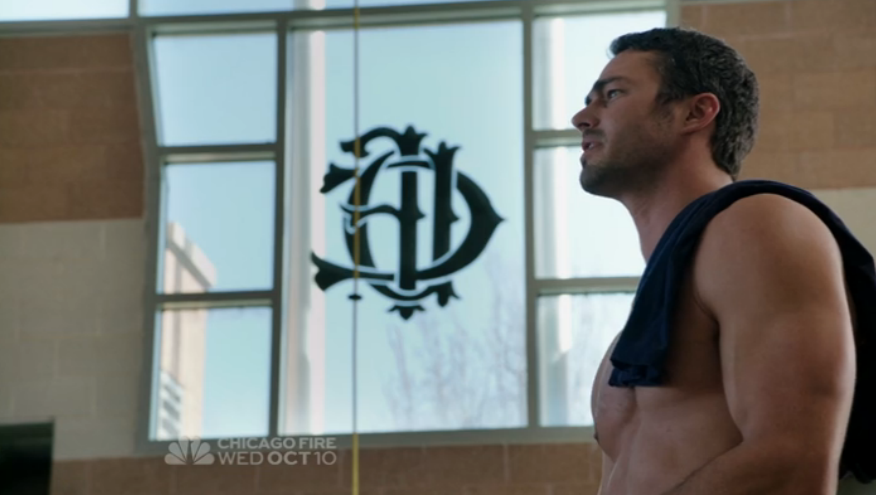
NBC’s Chicago Fire starts off with some firefighters going to a fire in Chicago. So in case you thought that the title was referring to the soccer team, or was a period piece about the original Chicago fire, or was a metaphor or something, rest assured: you will see plenty of firemen fighting fires. All those worries that this show had picked a name far too obvious for its topic were certainly validated.
What’s difficult is that, despite the credentials of creator Dick Wolf (Law & Order), firefighting has been done thoroughly and well on television, in FOX’s Rescue Me, a show that ended in 2011 for seven seasons. Though that show ebbed and flowed in believability, it took strong character tropes and turned them on their head. The pilot episode of Chicago Fire doesn’t demonstate that this show plans to do the same, or heaven forbid, some even more interesting than that.
“So that’s it, yeah? 14 years at this station and it all fits in a box,” says the wife of a fallen firefighter to his coworker. It seems that one fire (there are several biggies in the pilot alone) changed the course of history for this firehouse, as one of their own died. Two of the hunky male leads — Jesse Spencer and Taylor Kinney playing Matthew Casey and Kelly Severide, respectively — are now at odds over their role in their buddy losing his life; dedspite not being romantic, their relationship has the most heat in this show.
Rescue Me started off with a death too, and used some of the same character types: the hot blonde lesbian, the rookie who’s so green, the older worker gone to seed with a secret, the dueling brother-types, the wise black chief in charge. And it also worked hard to represent a working class New York. This Chicago aspect of this show is well-represented; Mayor Emanuel is coming by Saturday, it’s often mentioned, and he makes his less-than-a-minute cameo (set to music, no words spoken), with some facial expressions that will appear familiar to Chicagoans:
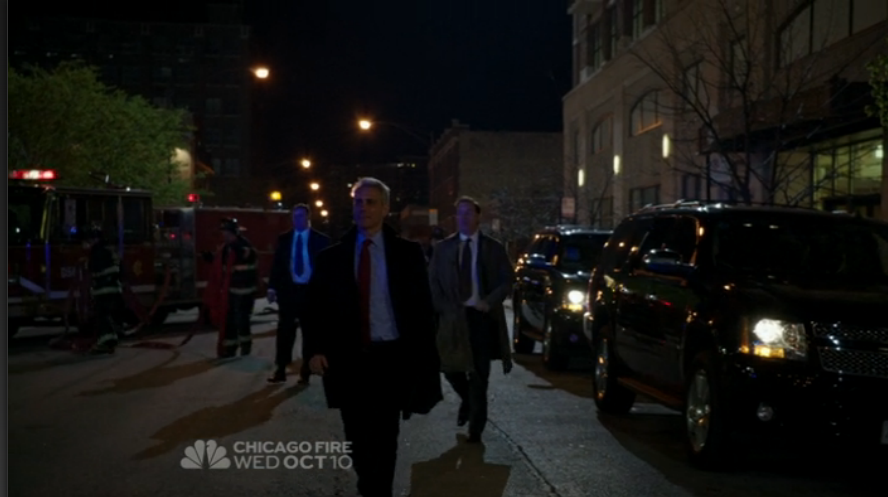
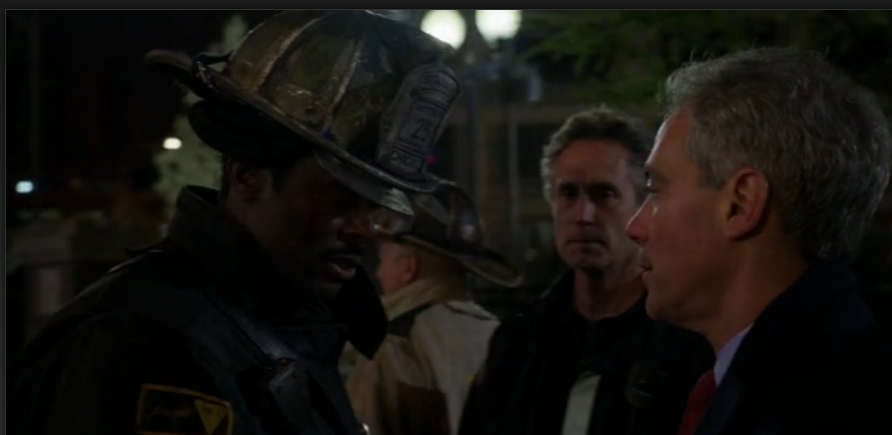
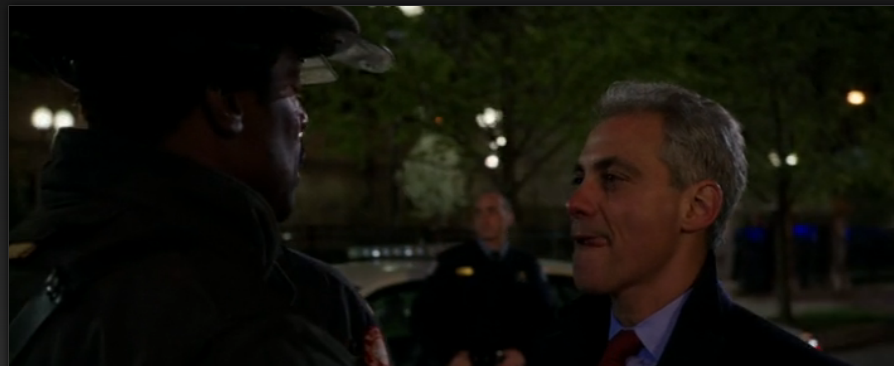
Wolf seems intent upon convincing you of his show’s Chicagoness by shoving shot after shot of the Sears Tower in the frame; he’s even chosen the location of the firehouse clearly for it’s view of it. But it’s the plotlines that will hopefully take us further around the different neighborhoods that do this better justice. The quickly cancelled The Mob Doctor tried to create a Chicago feel by revealing the secret world of mob life in the city, but the pilot of Chicago Fire does a better job showing the real gang violence in Chicago; a scene at a drug-related shooting in a South Side apartment complex rang very true. More beautiful, if less convincing, was the car accident on the Columbus Bridge, the river glittering in the background.
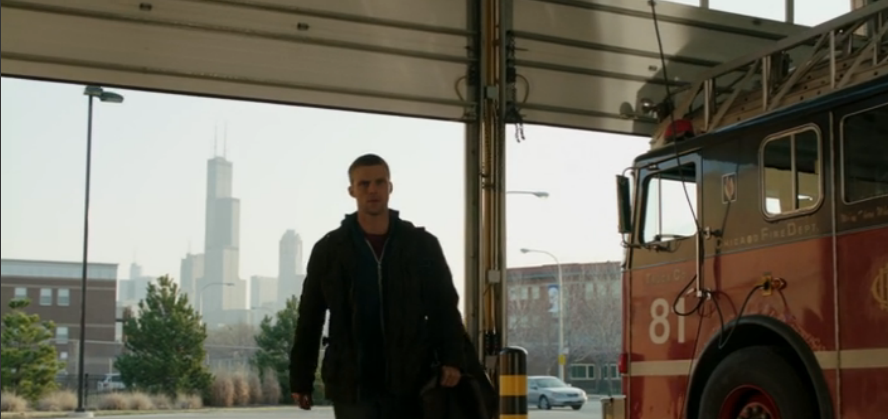
If anything, it’s well cast with faces you’ve seen before in smaller but impressive roles. David Eisenberg, memorable as Steve on Sex and the City, is now struggling with a house in foreclosure, and Monica Raymund, who impressed in a recurring role on The Good Wife, deals with not being a “real” doctor, just an paramedic. Her partner sums up their dilemma best: “You really are new, aren’t you?” she says to the rookie. “Listen, we get them to the doctor best we can and then we move on. That’s the only way to make it here.”
Despite all these smaller plotlines, the overall tension in the house seems to be some sort of class warefare within the firehouse: we learn that “There are two types of firefighters: those who are on squad, and those who wish they were on squad.” The difference here seems to be between whether the firefighter actually gets in the building and saves people or merely assists — at least, that’s what the distinction appeared to be. Whether this is an accurate tension that exists in houses or just a plot device remains to be seen, but it’s interesting to see the larger societal class issues effect this group, as the create their own internal distinctions.
On that note, the episode ends with a Bruce Springsteen song, the perfect working class man’s hero. Which seems topical except, don’t forget: he’s from New Jersey.
NBC’s Chicago Fire premieres Wednesday night at 9 pm central. Oh, and here’s a gratuitous shot of a girl bringing over Chicago Bagel Authority for breakfast. Good idea.






